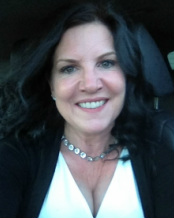
To minimize our egoic reactions to unquestioned beliefs and feel more peace in our lives, we must re-train, or re-habituate our egos to allow for positive changes to our beliefs and ideas about ourselves and others. We do this by calling on that "observer" within each of us to continuously pay attention to our emotional reactions to situations in our lives, and to ask ourselves what belief we have that is causing us to react in that particular way. We in effect, can use our emotional reactions as opportunities to become consciously aware of what belief is causing negative reactivity to rise up inside of us. Once we know what the belief is, we can question it. I can tell you numerous examples where a client may be upset with their job - a new boss is overbearing, the tasks are restructured in a way that requires more work for the same pay, or there may be a person or group of people who are gossipy and cause a lot of negativity in the office. One could get locked into the belief that they will have "failed" if they leave such a job. But I ask them to think about it differently. While often, by avoiding these difficult people as much as possible - or practicing presence with them - we could stay at a job with such issues - but more often than not, it builds until it is bad enough where the client chooses to go out and find a new job - or make another choice where they go back to school. The client may experience a great deal of negative emotion about these situations, and "hang in there" because their strong belief causes fear of their failing, or being perceived as failing, if they leave the job. So, questioning the belief that leaving the job means they have failed is important in this example - why do they believe it would be a failure to leave the job? Maybe a parent worked at his or her job for their whole working career, and as a child they heard that over and over again. Maybe the negativity the client is experiencing needs to happen and build so that the client can move on to a better position somewhere else, or go back to school to add to their skills. Without questioning the belief, the client may have felt stuck - the tremendous fear about transitioning to a new job made them feel that there was no way out, and such a person would have stayed much longer in an unhappy situation. So many end up much better off than before if they can accept the idea of change with equanimity, and look for the opportunity within the transition.
Many spiritual teachers tell us that within every emotion we experience related to events in our lives that we judge either "good" or "bad" has within it the seed of the opposite emotion. What this means to me, is that when we fall in love for example - with another human being, a pet or even a life situation, and are elated - at some point, that person, pet or situation will leave us. It may be, that the love of being with another endures your life time, but one of you will pass at some point, leaving the other alone - or like anyone who has pets knows, we love them when they are with us, but at some point they too will pass away and leave you. These situations can bring in tremendous sadness and feelings of loss. Just recognizing the fact that all life experience is transient - good or bad - can help us understand why living in the moment is so important. Taking time to bring consciousness into your body while mourning a loss, or experiencing a transition, can help tremendously with the transition through the loss. Being conscious or in the present moment can help us through any transition by removing or significantly reducing our emotional reactivity to the situation. Life transitions are opportunities for growth - transcending the fears associated with these major life events, and remaining open to the changes they bring without judgment of good or bad by our ego - will allow us to more clearly see the opportunity(ies) for growth within the experience.
 RSS Feed
RSS Feed